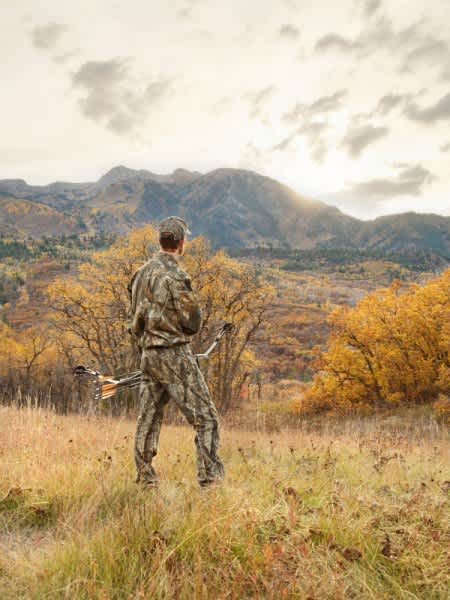Dealing with Acute Mountain Sickness
Tammy Sapp 11.11.11

For some hunters, it’s pukey at the top.
“Man, I feel like I’m getting the flu.”
Mark Cousins, hunter education coordinator for the Colorado Division of Parks and Wildlife, wishes he’d get a big game preference point for every time he heard somebody hunting in the mountains say that.
However, it’s not the flu that’s causing that throbbing headache and nausea. The more likely culprit is acute mountain sickness or AMS.
“For hunters who have traveled across the country for a Colorado hunt of a lifetime, the last thing they want to happen is end up curled up in a ball, throwing up,” Cousins said. “However, about 20 to 30 percent of people suffer from AMS to some degree.”
While flatlanders do run a risk of feeling the effects of AMS, even those living at 4,000 feet who take the fast track to the top can end up with it.
There is an easy cure. Cousins recommends dropping down to a lower elevation if you start feeling nauseous, tired, light-headed, short of breath and have a headache.
“Hunters who drive straight to 10,000 feet are courting trouble. They may feel great at first but it can come back to bite them by the second day,” Cousins said. “If you’re climbing above 8,000 feet, the smart thing to do is acclimate to the lower air pressure and oxygen levels by stopping to rest for a day or two every 2,000 feet.”
Cousins also recommends the following preventive measures:
- Stay hydrated by drinking lots of fluids.
- Eat regular meals that are high in carbs.
- Cut back on caffeine and avoid adult beverages during story time around the campfire.
- Visit your doctor before you hit the high country. If you’re a cancer survivor, have suffered a heart attack or lung disease, or are just out-of-shape, you’ll face special challenges hunting at high altitudes. Lower oxygen levels put additional strain on your cardiovascular system.
Hunters suffering from AMS who are too stubborn to retreat to lower elevations could wind up with more serious health issues. If left untreated, AMS can lead to fluid in the lungs, which is known as high-altitude pulmonary edema (HAPE). Another serious condition is high-altitude cerebral edema (HACE). Both conditions can be fatal.
According to Cousins, if you develop a fever and your breathing sounds wet and gurgley, it’s time to come down from the mountain because it could be pulmonary edema.
Cerebral edema symptoms include headache, fatigue, visual impairment, loss of coordination and even paralysis.
The best advice is to learn to recognize the symptoms of AMS, and seek relief immediately.
You can learn more about how to stay safe while hunting by taking an online hunter safety course at http://www.hunter-ed.com or http://www.bowhunter-ed.com. In addition to safe hunting strategies, you’ll learn first aid and survival techniques and how to avoid getting lost by using a map and compass. The training offered at these sites is approved by the state agencies responsible for hunter education.
Studying at www.hunter-ed.com and www.bowhunter-ed.com is free. Those who must be certified before they can buy a hunting license pay a one-time fee, which is due only if they pass the test. Students can take the test as many times as they need to pass it. Online hunter safety and bowhunting education courses are available in participating states, so visit the sites now to take a course specific to your state.
About Kalkomey
Kalkomey, parent company of hunter-ed.com and bowhunter-ed.com, is the official provider of recreational safety education products for all 50 states. Our print and Internet courses have been providing official safety certification since 1995. We provide safety courses in boating, hunting, bowhunting, and off-road vehicle (ORV) and snowmobile operation. For more information, visit http://www.kalkomey.com/.

